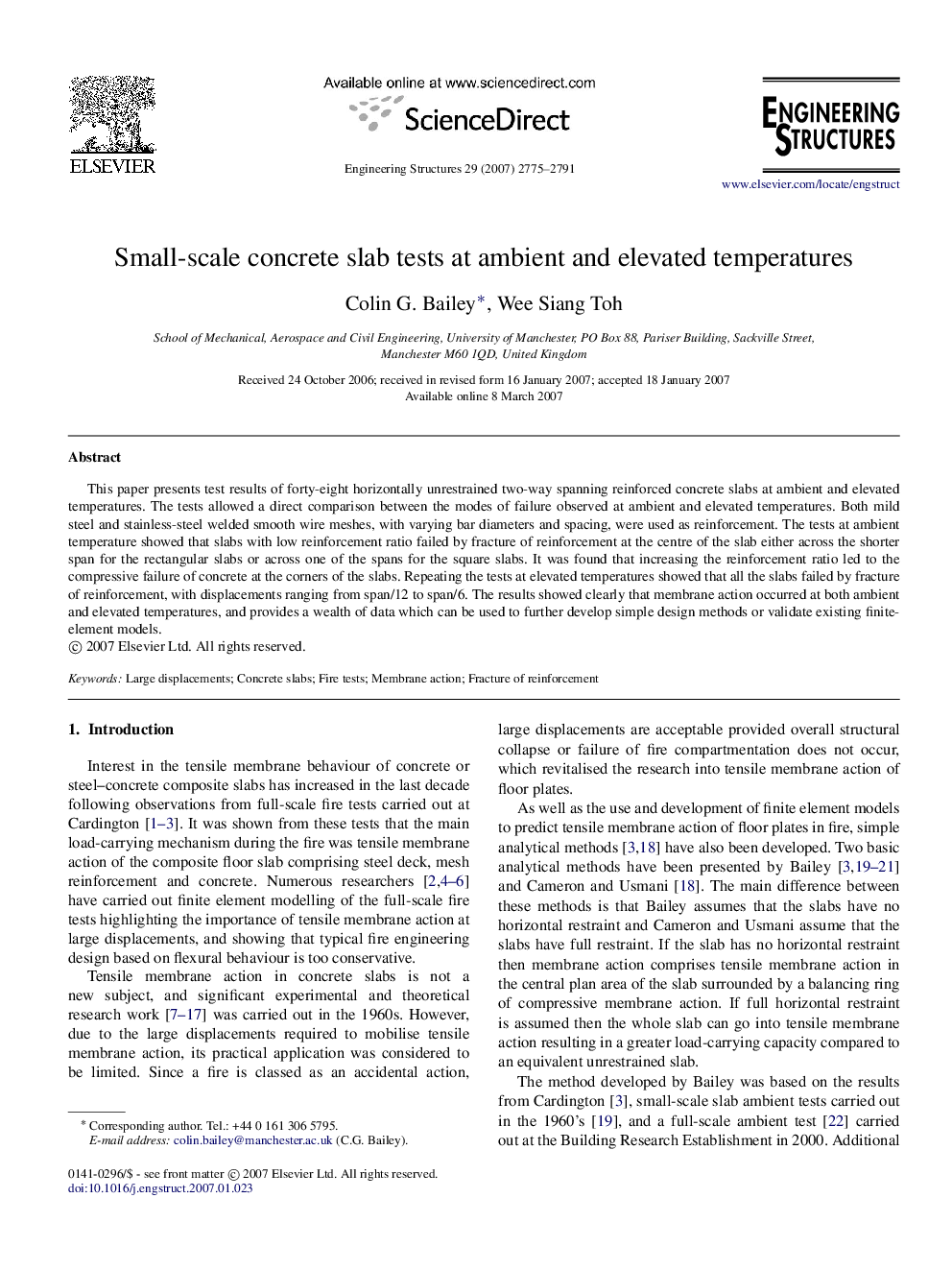| Article ID | Journal | Published Year | Pages | File Type |
|---|---|---|---|---|
| 269223 | Engineering Structures | 2007 | 17 Pages |
This paper presents test results of forty-eight horizontally unrestrained two-way spanning reinforced concrete slabs at ambient and elevated temperatures. The tests allowed a direct comparison between the modes of failure observed at ambient and elevated temperatures. Both mild steel and stainless-steel welded smooth wire meshes, with varying bar diameters and spacing, were used as reinforcement. The tests at ambient temperature showed that slabs with low reinforcement ratio failed by fracture of reinforcement at the centre of the slab either across the shorter span for the rectangular slabs or across one of the spans for the square slabs. It was found that increasing the reinforcement ratio led to the compressive failure of concrete at the corners of the slabs. Repeating the tests at elevated temperatures showed that all the slabs failed by fracture of reinforcement, with displacements ranging from span/12 to span/6. The results showed clearly that membrane action occurred at both ambient and elevated temperatures, and provides a wealth of data which can be used to further develop simple design methods or validate existing finite-element models.
